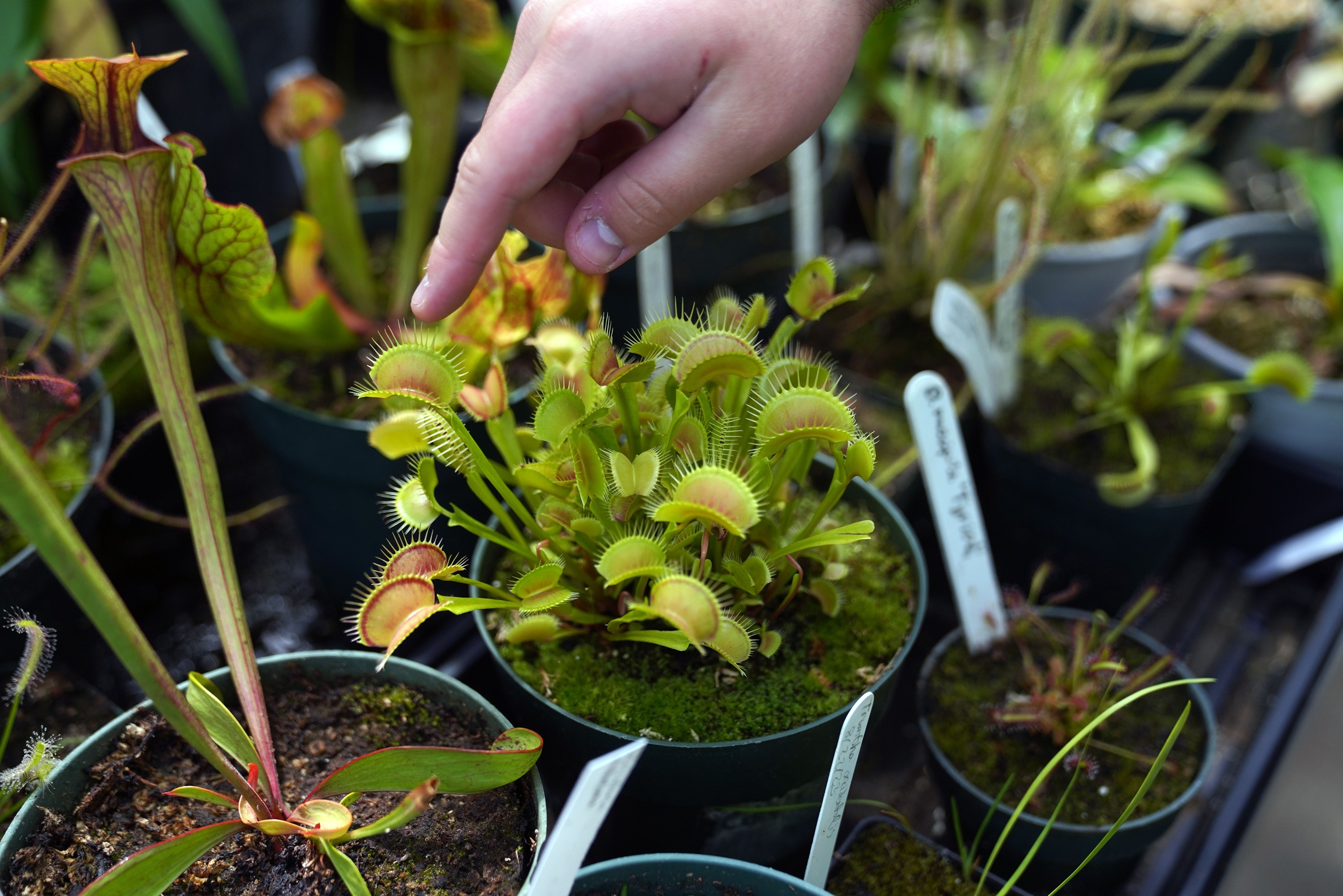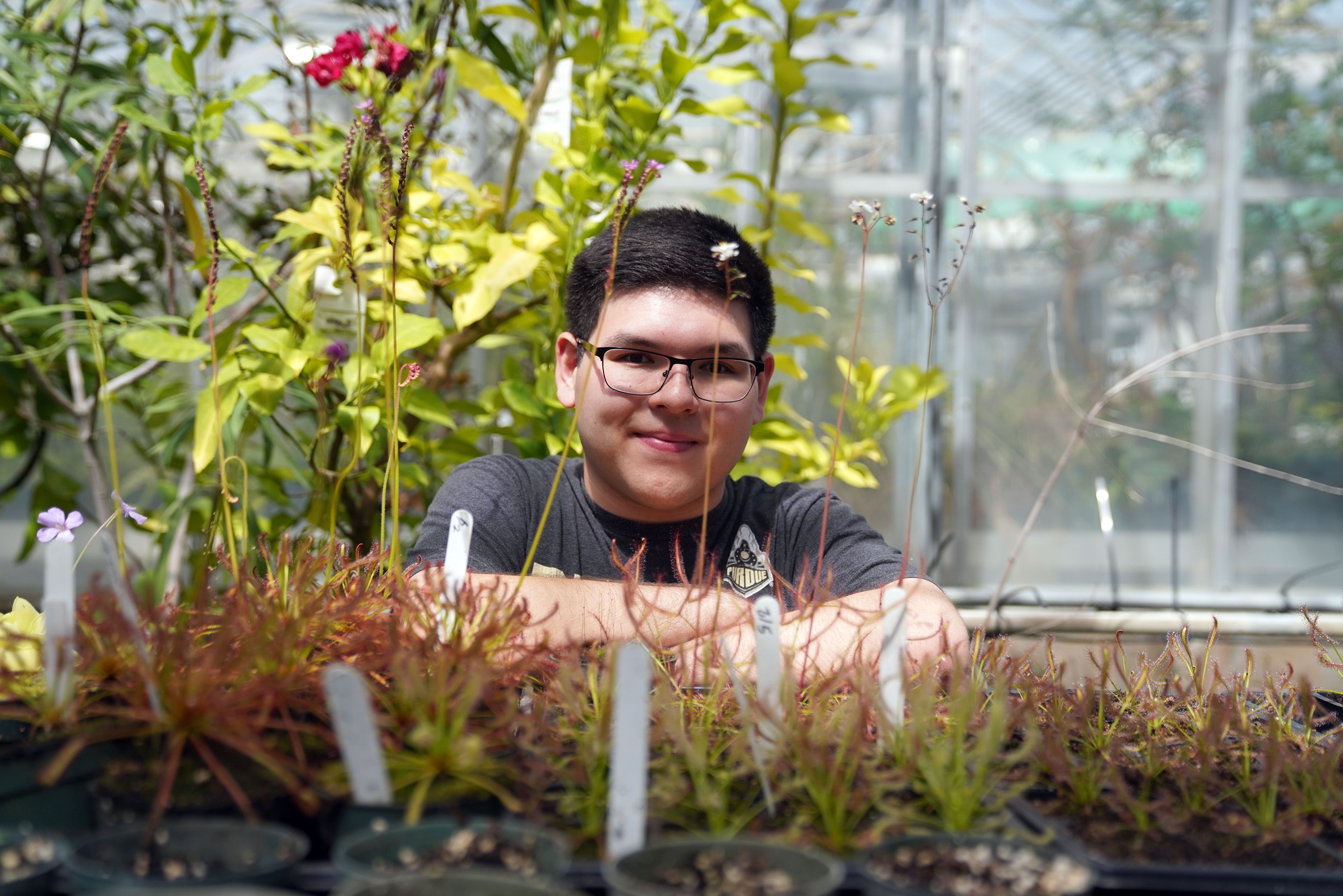Fields Of Discovery: A hunger to research carnivorous plants

Three years ago, high school senior Jonathan Lu attended a Zoom meeting for prospective students with Purdue University’s Department of Botany and Plant Pathology. At the meeting, Lu chatted feverishly with botany professor Scott McAdam about their shared passion for plants. While the meeting eventually ended, their shared pursuit of knowledge had only begun.
Once Lu started as a botany student at Purdue, Lu enrolled in Botany 120: Principles of Plant Biology 1 with McAdam. Lu was drawn in by McAdam’s approach to the course. “I liked his way of thinking about the world.” Not thinking that McAdam would remember their interaction over Zoom, Lu ended up asking McAdam if he researched carnivorous plants. To Lu’s surprise, McAdam told Lu that he recalled their conversation about Venus flytraps. “Before I knew it, I was brought into the lab. He just said, ’Make yourself at home.’”
Today, Lu works in McAdam’s lab researching the anatomy, morphology and desiccation tolerance of carnivorous plants. Generally, the team is examining how carnivorous plants like Venus flytraps withstand severe droughts.
Another facet of Lu's research is in the anatomy of Nepenthes pitcher plants. “These plants are tropical pitcher plants where bugs fall in their traps. Inside the traps, there are these little moon-shaped lunate structures. These structures were once believed to be stomata, which are structures that allow plants to breathe. Upon looking closely at the structures, we found that that’s not true. We’re just finding out now that these structures are unique. Now, I'm trying to discover how they develop.”
Lu’s passion for carnivorous plant research began early. When he was four years old, he got his first Venus flytrap. “It grew, and it grew, and then I killed it,” Lu recalls. “And then, we got a new one, and I killed that. And then, we got another one. It was a cycle.”
Finally, Lu was able to keep a Venus flytrap alive for one year. Soon, he started a collection of carnivorous plants at home in a small dish. Over time, that collection grew and expanded into kiddie pools and grow racks.
 Jonathan Lu examines a plant in the Lilly Greenhouses.
Jonathan Lu examines a plant in the Lilly Greenhouses. Lu explains that carnivorous plants are a niche topic in a secluded field. “In my eyes, these are understudied plants,” he explains.
The lab examines the new ways these plants approach stimuli. For example, they might look at what structures a carnivorous plant uses to kill bugs. To complement that research, they could find a non-carnivorous plant with the same structures. This would allow them to examine the similarities and differences between the plant structures to learn more about how plants function.
“The work is very foundational,” says Lu.
Lu expects to graduate in Spring 2026. Post graduation, he plans to go into academia and potentially work towards higher degrees. Ultimately, he wants to delve into the mysteries of the function and evolution of carnivorous plants and why they are so rare.
Like his beloved carnivorous plants, Lu has a hunger. He seeks to understand these under-valued plants. It takes care and resilience to study a field that many overlook, but Lu is used to the process of tending to his work. From kiddie pools to collegiate labs, he’s been doing it all his life.
 Jonathan Lu sits among the plants he is researching this summer in the Lilly Greenhouses.
Jonathan Lu sits among the plants he is researching this summer in the Lilly Greenhouses. 





